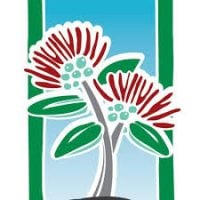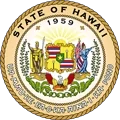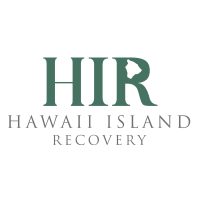Big Island Substance Abuse Council - Hawaii Academy of Arts and Science
Drug Rehab Center in Pahoa, Hawaii
The Big Island Substance Abuse Council - Hawaii Academy of Arts and Science offers comprehensive treatment services for substance abuse and addiction that include individual, group, and family therapy, as well as 12-step programs, medication-assisted treatment, and holistic therapies, with the goal of providing compassionate, evidence-based care in a safe, supportive environment.
About
Big Island Substance Abuse Council - Hawaii Academy of Arts and Science, a non-profit rehab facility, is located in the serene town of Pahoa, Hawaii. Established in 1996, the Academy has been dedicated to providing comprehensive, evidence-based treatment for individuals struggling with substance addiction and mental health disorders for over two decades.
• Individualized treatment plans tailored to each client's unique needs
• Holistic approach incorporating 12-step programs, relapse prevention, and life skills development
• Family therapy and spiritual support to foster a strong support system
• Medication-assisted treatment and alternative therapies available
Accredited by the Commission on Accreditation of Rehabilitation Facilities (CARF) and holding a Gold Seal of Approval from the National Institute of Standards and Technology, Big Island Substance Abuse Council - Hawaii Academy of Arts and Science is committed to delivering high-quality care. The facility is also licensed by the state and recognized by the Substance Abuse and Mental Health Services Administration (SAMHSA).
The Academy specializes in treating a wide range of substance use disorders, including alcohol, opioid, and stimulant addictions. They offer various levels of care, such as residential treatment, intensive outpatient programs, and aftercare services. The experienced staff employs evidence-based therapies, including cognitive-behavioral therapy (CBT), motivational interviewing, and trauma-informed care.
In addition to client care, Big Island Substance Abuse Council - Hawaii Academy of Arts and Science offers continuing education and certification programs for aspiring addiction counselors. The organization also actively engages with the community through outreach activities, educational workshops, and forums to raise awareness about substance abuse and mental health issues.
Genders
Ages
Modality
Additional
Accreditations
State License
SAMHSA
Conditions and Issues Treated
Within the past decade, opioid addiction has become a nationwide epidemic. The United States hosts one of the world’s highest rates of opioid use or abuse and has one of the highest rates of opioid-related deaths. In the United States, opioid drugs are classified as Schedule II-IV controlled substances due to their highly addictive properties and potential for abuse. These include morphine, opium, heroin, oxycodone, hydrocodone, methadone, and fentanyl. Physicians usually prescribe opioids to help control pain.
Over time, opioid users develop a tolerance for the drugs, which makes it difficult, if not impossible, to function without them. In turn, opioid users often resort to illicit means of obtaining the drugs. These means can include drug dealers, friends, and family members who do not have legitimate prescriptions for the drugs. Opioid addiction can quickly lead to heroin use, especially those seeking more intense highs than prescription opioids offer. Due to the high risk of overdose, heroin users are at a much higher risk for illness and death.
Levels of Care Offered
This center offers a variety of custom treatment tailored to individual recovery. Currently available are Aftercare Support, Drug Rehab, Outpatient, with additional therapies available as listed below.
An outpatient treatment program is set up to help with alcohol or drug addiction or a co-occurring disorder. The treatment must attend the treatment facility for their therapy and other programs but return home each night. The frequency of mandatory attendance decreases after much of the treatment program is complete. The treatment programs are monitored by the treatment facility and case managers who work for a judge or judge’s office. A treatment program may be performed out of a treatment facility, treatment clinic, or treatment center.
The benefits of outpatient treatment programs are many. One of the most beneficial treatment programs is that it allows treatment for clients who cannot afford or may not be able to attend treatment at a treatment facility, treatment center, or treatment clinic full-time. Another benefit of treatment programs is that they reduce crime rates because treatment allows people to treat their addiction.
Recovering drug addicts need aftercare support when they leave treatment. The support can include guidance through 12-step programs, outpatient rehabilitation programs, and support groups. Aftercare supports the individual in their desire to maintain sobriety by reducing relapse risk with positive choices.
The success of drug treatment does not end when the addict leaves the rehabilitation center. There is no such thing as a “one and done” type of rehabilitation process. Recovery is a lifelong journey that begins with treatment and continues by the addict committing to outside support groups or drug rehab programs.
When choosing a program, it is crucial to choose one that will provide long-term aftercare support. This ensures that you have the tools you need to sustain your recovery.
Therapies & Programs
Individualized Treatment is essential because it gives addicts the ability to participate in a program that meets their unique needs. An addict should work with professionals who understand what they’re going through, especially if the addict is actively using. Finding the right treatment program for an addict is difficult, but it’s even harder without communicating with those who have experience treating your specific situation.
Couples therapy is a treatment approach where the patients and their partners are engaged together. When a person becomes a victim of substance abuse, it affects the patient and his people, particularly his partner. Their relationship can become strained due to lack of communication, financial issues, loss of trust, lack of intimacy, and physical abuse in more severe cases. Couples therapy addresses these issues and tries to rebuild the trust between the partners. The partner’s involvement in the process will result in greater chances of treatment success and sustained recovery.
The therapies typically involve all family members, potentially including siblings, children, and parents who play a role in their daily lives. These sessions can be essential because they address past issues that may have affected an addict or alcoholic’s recovery process. They provide support during this time when it is needed most!
A family therapy session, often called a family meeting or intervention, is a necessary process that helps loved ones of addicts see their situation in a new light. It’s also one of the most challenging things families will ever have to do when they’re facing a loved one battling addiction or alcoholism.
Group therapy sessions provide recovering addicts with a chance to cope with everyday situations that many face. Group therapy sessions are held in rehab facilities, clinics, churches or community centers that offer drug addiction treatment.
People who attend these groups are encouraged to voice their feelings and support other addicts in recovery. This helps group members strengthen their own recovery program while cheering on others who are struggling with sobriety.
Trauma therapy allows them to work through past trauma to have peace of mind and begin down the road of sobriety. The therapist will work with the individual to help them understand their past and present relationships. Patients may often believe that something is inherently wrong with them or they are unworthy of love. The therapist aims to correct these negative feelings and behaviors by helping the person realize that their actions do not reflect who they truly are.
Cognitive Behavioral Therapy (CBT) is a highly effective treatment option based on the idea that how we feel, think and act all interact together. Our thoughts determine our feelings and behaviors; our feelings affect our thoughts, and our behaviors change our thoughts and feelings. CBT helps people explore their thoughts for problems (or false beliefs) that influence their mood and actions. By examining their thoughts and beliefs, people can recognize distorted or irrational and modify them to more realistic, positive ones. CBT is very goal-oriented, which means that the therapist and patient work together on a specific problem while learning to become more adept at solving future problems.
CBT works well with a broad range of people, including those with depression, anxiety disorders, eating disorders, and problems with anger. In addition to helping a client focus on thoughts that can be changed, CBT also allows them to take an active role in their treatment. This is called a collaborative approach because both patient and therapist work together to produce the best possible results.
CBT is based on cognitive learning theory, which says that our behavior is a learned response to our environment. Cognitive refers to thoughts and beliefs, while behavioral relates to actions or deeds. CBT helps people learn ways of behaving to improve their quality of life by focusing on specific problems or goals they want to achieve. Sometimes, CBT is used alone; other times, it is combined with medications or brief counseling techniques such as solution-focused and motivational interviewing to achieve optimal results for the patient.
Big Island Substance Abuse Council Associated Centers
Discover treatment facilities under the same provider.
- Big Island Substance Abuse Council - Kailua Kona in Kailua Kona, HI
- Big Island Substance Abuse Council - Ka Wahi Ola Hou in Hilo, HI
- Big Island Substance Abuse Council - Hilo in Hilo, HI
- Big Island Substance Abuse Council - Connections in Hilo, HI
- Big Island Substance Abuse Council - Laukona House in Hilo, HI
Learn More About Big Island Substance Abuse Council Centers
Additional Details
Specifics, location, and helpful extra information.
Pahoa, Hawaii 96778 Phone Number(808) 969-9994 Meta DetailsUpdated April 15, 2024
Staff Verified
Patient Reviews
There are no reviews yet. Be the first one to write one.
Pahoa, Hawaii Addiction Information
Hawaii has one of the highest rates of drug abuse in the nation. Methamphetamines and marijuana are the most common drugs involved in drug-related crimes in Hawaii. The state loses $500 million every year due to methamphetamine abuse, according to the Hawaii Meth Project. More than 1 million prescriptions for prescription drugs are given out every year.
In Pahoa, Hawaii, drug addiction is a serious concern. According to recent statistics, in 2016, there were nine deaths due to overdosing on drugs in Pahoa. Additionally, there were 119 admissions to rehab facilities for drug addiction in Pahoa that year. Most drug overdose deaths (51%) occur among people aged 35-54. Some common treatments include residential treatment, outpatient treatment, and detoxification.
Treatment in Nearby Cities
- Waialua, HI (251.4 mi.)
- Keaau, HI (10.4 mi.)
- Lahaina, HI (147.7 mi.)
- Mililani, HI (240.4 mi.)
- Schofield Barracks, HI (244.6 mi.)
Centers near Big Island Substance Abuse Council - Hawaii Academy of Arts and Science
The facility name, logo and brand are the property and registered trademarks of Big Island Substance Abuse Council - Hawaii Academy of Arts and Science, and are being used for identification and informational purposes only. Use of these names, logos and brands shall not imply endorsement. RehabNow.org is not affiliated with or sponsored by Big Island Substance Abuse Council - Hawaii Academy of Arts and Science.










